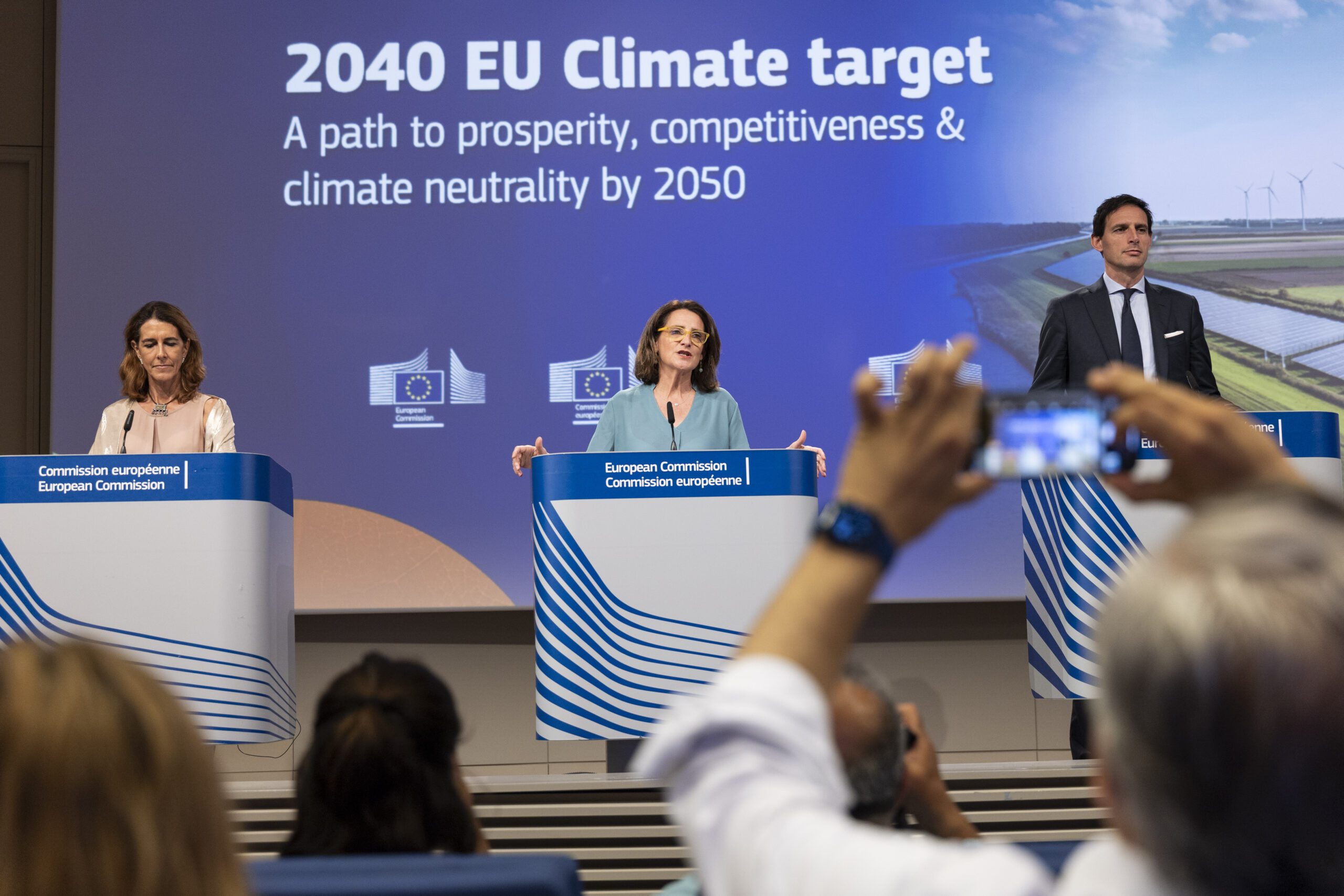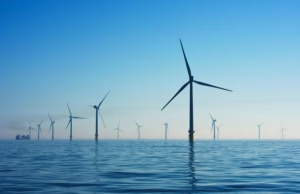by Matthew Sekol
There are a few things you can say that get me into a huff real quick.
- Everyone should return to the office.
- Decarbonization is the most critical environmental focus for all companies.
- ESG is a ____ (framework, standard, data, rating, values-based exercise).
And then there’s something that really gets me going. Whenever I ask a company about its climate risk, I almost always get blank stares.
Cue the facepalm! 🤦♂️
In today’s world of ongoing climate disasters combined with globalization, I’m unsure how companies continue to overlook this one fairly universal risk. At most, I see boilerplate risk disclosures in their 10-Ks. That is, unless they’ve experienced a severe climate event, in which case it is usually a few years of reporting losses.
This brings me to this past week, where everyone’s despair is at its peak, and every call ends on a negative note.
The interconnected nature of ESG is working against its progress, as any move, even a material business decision, can be a target. Moreover, the stock market continues to drop, and geopolitical worries are on everyone’s mind.
Attention seems laser-focused on the US political machinations and little else.
And so, this past week, I had a day that started and ended with meetings where the people coincidentally asked me the same question:
What’s it going to take?
Meaning, in this age of uncertainty, what’s it going to take to get companies to focus on the things they should be focused on and move forward?
Oof. This is a good question, and one that I’ve been asking myself lately. Let’s take a look.
Environment
The Chief Sustainability Officer, the role most associated with ESG, has been asking themselves this question for a while now. Faced with low budgets due to a low-value compliance focus and limited organizational influence, these leaders question how best to engage the board or primary business functions.
This is about more than getting people to ‘care.’ It’s about evolving the company to see its material risks and opportunities, and the most universally material issue isn’t carbon; it’s climate risk. The other most material issues for companies, well, they have to figure that out for themselves.
Even climate risk looks different across industries and companies. It may be related to at-risk physical assets, supply chain disruptions, the impact on stakeholder health, agricultural growing patterns, and the disappearance of insurance coverage.
Privately, I’ve speculated that companies will only pay attention when a climate disaster takes out a notable company. So far, that hasn’t happened. Flooding in Germany in 2021 almost brought the entire reinsurance market to a standstill, but it didn’t. PG&E, Xcel Energy, and Hawaiian Electric Company all continue to operate amidst wildfire exposure, and despite all their environmental disasters, oil and gas companies continue to operate.
We’ve not yet seen acute climate risks or extreme weather impact a company to the point where it has shut down.
I certainly heard more chatter after the LA wildfires, and banks seem to be following insurers in terms of risk, but corporates have not. Yet, corporate attention to this systemic risk appears to fluctuate with quarterly reporting cycles rather than any meaningful planning.
Social
We’ve experienced several major social trends that have significantly shifted attention to stakeholders over the past few years.
Of course, we had COVID-19, which accelerated the shift to hybrid work and possibly even contributed to the rise of employee power and unions. The last time Trump was in power, we saw the horrific murder of George Floyd. With ICE raids on the rise and deportations becoming a public spectacle, the country is facing another tragedy in the making.
Still, in the haste to address these crises, companies rushed to implement hybrid work solutions that have now put their commercial real estate investments at risk, as well as poorly constructed DEI efforts that have exposed them to litigation. Rather than focusing on stakeholders to lower attrition, protect talent, and create equity, companies created more problems.
I would hate to believe that the next tipping point will be a repeat of the last one: either a global catastrophe or someone tragically losing their life on camera. After all, none of these things really drove attention to the social pillar for companies in a material way. Companies responded to each trend by implementing short-term measures.
Trends are pushing attention into these stakeholder areas, but not enough, it seems.
Target’s shifting stance on DEI initiatives coincided with a decline in foot traffic, while Costco, which opposed an anti-DEI proxy resolution, has seen an increase in foot traffic (RetailBrew). Still, is this enough for Target to change its strategy, or would it need to experience an existential threat to the business from a key stakeholder?
The retail example is very specific, and, as with climate risk, different industries will have unique intersections with their stakeholders. Unlike sustainability, there is unlikely a ‘stakeholder’ team focused on this topic, which puts it even further from the board’s mind.
Governance
Governance is going through a significant tipping point today. While governance is typically in the control of the company’s board and management team, it also relies heavily on their skills and the operating environment. There hasn’t been such a universally unpredictable challenge to governance since the second Trump administration, which has introduced significant uncertainty.
As the stock market plummets, US allies pull away, and bizarrely targeted decrees are announced, companies are scrambling to protect themselves. The anxiety is real, as Larry Fink highlights in the opening of his annual letter to investors.
I hear it from nearly every client, nearly every leader—nearly every person—I talk to: They’re more anxious about the economy than any time in recent memory. I understand why.
There’s no sugar coating it; drawing the ire of the President is enough to threaten a company, at least until someone disproves it. This is a risk the other two pillars haven’t seen yet.
Political whims are warping fudiciary responsibility and subverting the business judgment rule. As a result, companies are conceding and facing the lesser-known risk of stakeholder rage rather than fighting back for a stable business environment or their right to operate without singular government interference.
The trade-off for broad regulatory rollbacks has evolved into targeted regulation by Executive Order, shifting to a single stakeholder and a single company.
What it takes to get companies moving is threatening their existence directly.
Uncertainty breeds interconnected disasters
Ultimately, many of the examples I present here are based on one pillar but also intersect with others. So far, none of these things have actually led to the demise of a company, but here’s the rub: The uncertainty being manufactured means it’s more likely that something will happen from which there won’t be a recovery.
In other words, every day, the tide comes in and washes away a bit more of the stable foundation that businesses are built on. When the wind kicks up, the company will fall over.
ESG’s nature has always been interconnected, which is both beneficial and challenging. For those working in sustainability, a stakeholder-facing business unit, or with governance, it means that if you think systemically, you can identify and mitigate complex risks while creating new opportunities.
So, let’s revisit the rest of Fink’s opening in his letter, where he offers some optimism.
But we have lived through moments like this before. And somehow, in the long run, we figure things out.
The ‘somehow’ in this situation doesn’t just happen. It depends on people like YOU who are willing to take the long-term view and push forward.
Here’s what ESG professionals can do now:
- Ask the hard questions and extrapolate out the externalities and trade-offs against your material issues.
- Consult with your stakeholders and value chain participants to identify gaps in coverage.
- Address the uncertainty head-on and ask just how prepared you are to defend against a direct hit.
Meanwhile, in the short term, we are going to go through some things. When the fundamentals of business are thrown so out of whack, stakeholder and company protections are rolled back, and your company is constantly living in fear and barely ready to react, any brewing polycrisis could be the one that takes you down.
So, who’s going down first?
Related Article: Matthew Sekol: 20th Anniversary of the First Public Appearance of ‘ESG’ in UN Whitepaper “Who Cares Wins”

 Follow SDG News on LinkedIn
Follow SDG News on LinkedIn











